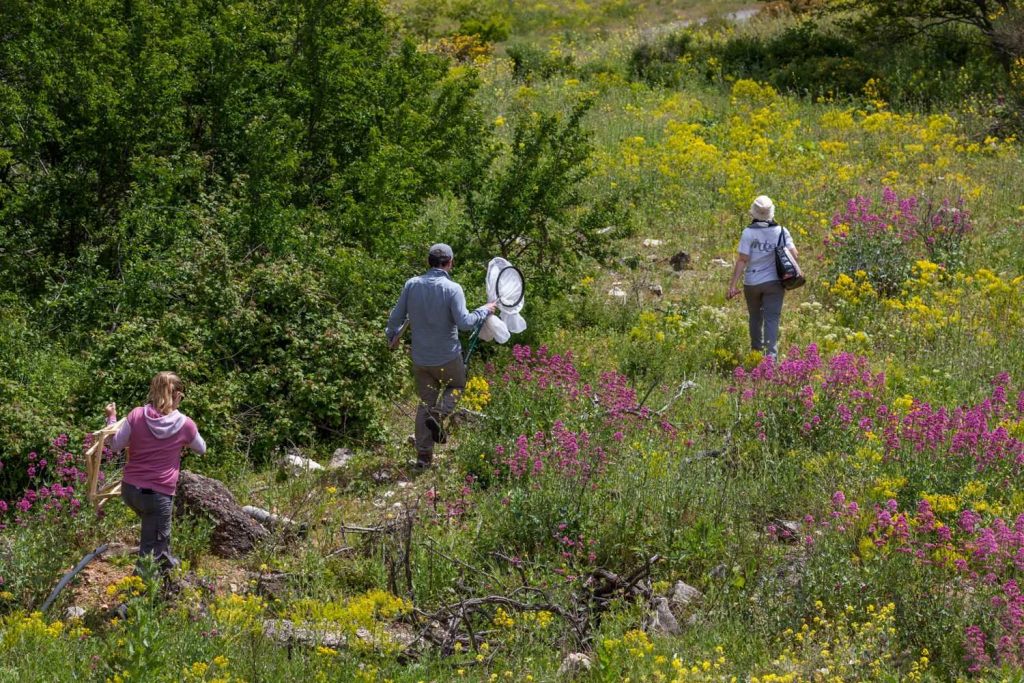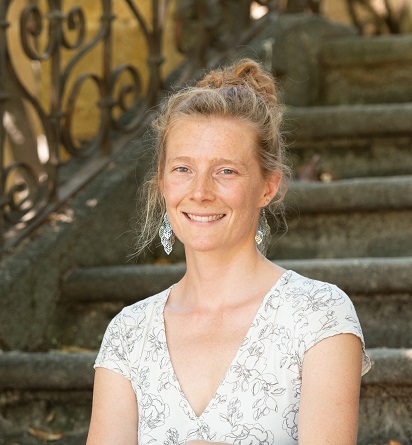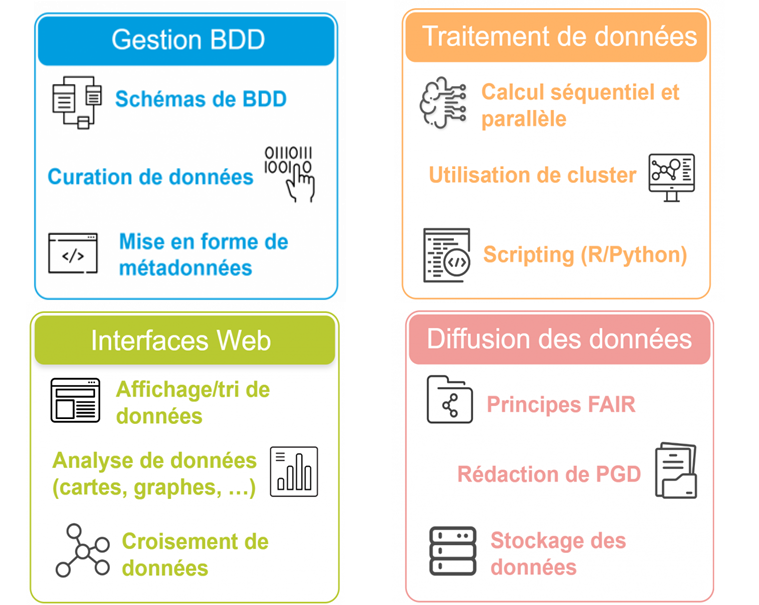POPCO – Populations, Ecosystems, Communities & Conservation
Presentation
Human/non-human interactions often result in direct and indirect damage to numerous populations and communities of organisms, affecting their abundance, functioning, spatio-temporal distribution and diversity.
Conservation and restoration measures are currently very limited compared with the scale of the fragmentation and loss of habitats, changes in use, pollution and the modification of biotic interactions. In addition, anthropogenic global warming may exacerbate the exposure of populations and communities of organisms to these threats.
Faced with this ecological crisis, the research developed within the POP'CO are designed to (i)assessing vulnerability of species, populations and communities in the face of the various components of global changeand monitor adaptive responses (ii) and understand the processes underlying changes in populations and communities at different spatial and temporal scales(iii) and finally co-constructing original conservation programmes with managers, taking into account the spatial nature of these vulnerabilities.
In order to meet these objectives, the POP'CO team is particularly committed to :
- Characterising remarkable, exotic or ordinary biodiversity
- Determine the impact of the environment on functional traits (life history, chemical, morphological, phenological, demographic, behavioural, microbial functions and diversity) and on biotic interactions.
- Understanding the role of biodiversity in regulating ecosystem functions.
The team is also developing co-construction projects, integrating solutions based on Nature, as part of a research/action approach to the conservation and adaptive management of biodiversity. This work is fuelled by exchanges of knowledge and interactions between team members, biodiversity managers and organisations working in the field of conservation.
The team's expertise enables it to meet these objectives using different models (animal, plant and microbial) in a wide range of biomes marked by a constrained water cycle (tropical sub-humid, Mediterranean, semi-arid and arid), in tropical (Senegal, New Caledonia, Brazil, etc.) or temperate systems and in different ecosystems: forests, grasslands, agrosystems, coastal systems, hydrosystems (mainly alpine lakes and rivers). This broad coverage enables the POP'CO team to deploy its expertise throughout France, Europe and the rest of the world.

Research topics
The Team
Collaborations
BIOALPINE programme. ERDF - SOUTH region
BiodivERsA Integrad project
CIVIS (AMU),
Science Us (AMU)
ANR RESILIENCE project, PEPR VDBI: https://pepr-vdbi.fr/projets/projets-resilience
Région SUD Hist 2F project: History of forest uses and functioning: the case of pubescent oak forests in the South of France
VULNEO project financed by the OFB: assessment of the sensitivity and vulnerability of avifauna in mainland France to onshore wind turbines and proposal for spatial prioritisation
ITTECOP project funded by ADEME: evaluation of the effectiveness of bird beacons on the overhead electricity cable network
Ville de Marseille, Métropole AMP, Métropole Lille Europe, ONF, Parc des Alpilles, Parc des Calanques, parcs des Ecrins et du Mercantour, PNR du Luberon, PNR des Baronnies provençales, PNR du Verdon, Association des Viticulteurs de la Sainte Victoire, ENGIE, RTE , Observatoire Des Saisons (ODS), SOERE TEMPO, OFB Lyon, OHM Bassin Minier de Provence
-SNCF Réseau - 2021-2024. Study of the allelopathic potential of native Mediterranean plants for the control of invasive alien plant species (EVEE) : Arundo donax, Ailanthus altissima, Acacia dealbata.
- Gravit'Hy (a company specialising in the production of carbon-free iron, with its first production plant in Fos-sur-Mer) - 2025-2027... 2025-2026. Translocations of protected plants.
-Société SOLABLE: Evaluation of the water purification capacity of the LAVIE system using UV radiation (CIFRE thesis by Ian Vedaux)
- AERE: Vulnerability indicators for pubescent oak forests (Andréa Bagnon CIFRE thesis)
- EPA EuroMediterranee / Agence de l'eau. 2021-2023. State of health of the Aygalades coastal river and its banks. Multiple contamination and impacts on biodiversity.
- MAMP (Aix-Marseille-Provence Metropolitan Area) / Water Agency / VDM (City of Marseille) / Southern Region. 2026-2028. Ecological characterisation, renaturation and climatic resilience of the Jarret stream: an integrated approach.
- Calanques National Park - 2023-2026. Characterisation of wild bee communities and floral resources in the Calanques National Park archipelagos. (Thesis C. Bouchot)
- SOPTOM (Station d'Observation et de Protection des TOrtues et de leurs Milieux). 2023-2026. (Thesis Guénier C.) Experimental reinforcements and behavioural analyses of Hermann's tortoises: optimising the conservation strategy for a reptile threatened by fire.
SFE2 Board of Directors, SFE2-paysages Steering Committee, Scientific Council of the Foundation for Research on Biodiversity, Scientific Council of the Coussouls de Crau Nature Reserve, GIS lacs sentinelles, Scientific Coordination of the National Harrier Protection Network, IMSIC (AMU), INSPE (AMU).









































